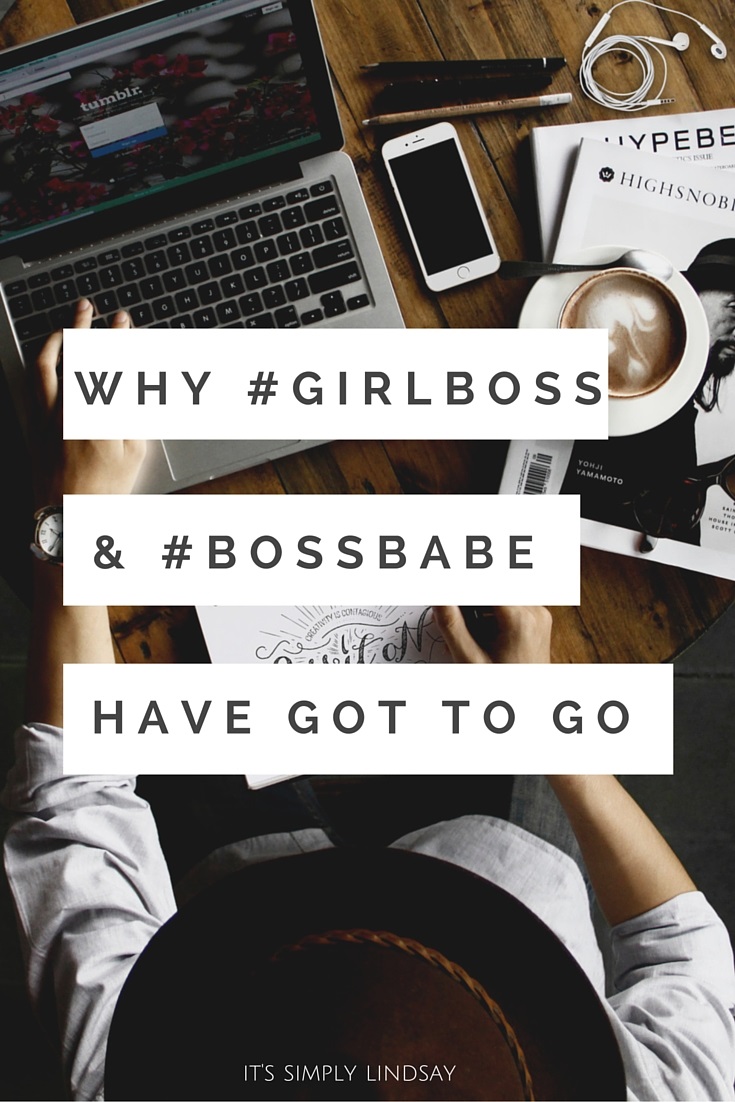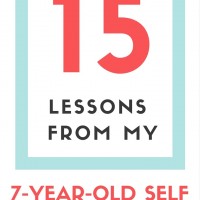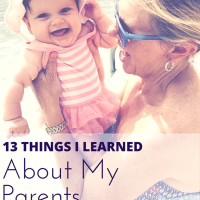
The hashtags #girlsboss and #bossbabe have swept social media, with 2,574,479 and 1,457,339 Instagram hits, respectively, to date.
Women are using the tags on photos that demonstrate their professional or personal strength, fearlessness, successes, and ambition, always lifting up others in the process.
The notion of girlboss and bossbabes has united women and truly started a movement of what seems very empowering to the gender deemed the weaker sex by popular societies around the world.
So why is this a bad thing? Why do I say these hashtags and language have got to go?
Come at this with an open mind, and let’s break it down and take a closer look. Looking forward to your take and responses at the end.
Why #Girlboss & #Bossbabe Have Got To Go
Why Girlboss is demeaning
“girl”
You may think I have an issue with calling strong women girls, but that couldn’t be farther from the truth. In fact, I always refer to myself as a girl and even though I’m 29-years-old, I have a hard time calling myself a woman – it just sounds so grown up! I feel in my heart that I’m a girl, and I have no problem calling other women girls or men boys. Just like when I see a baby dog or full-grown dog, I’ll call it a puppy.
Along this gender issue vein is a hot topic in parenting culture today – de-gendering things, you know, that we shouldn’t label boy and girl things. I also don’t think de-gendering everything is productive – as humans, we are boys and girls, men and women. That’s a fact. It’s also a fact that inherently, men and women have different innate strengths, weaknesses, and differences.
By refusing to acknowledge someone is a boy or girl and that that boy or girl may have different preferences is just pointless to me. Do I think girls should be forced to have pink everything, dolls, and cleaning toys only? Heck no! Should little boys be dissuaded from playing with and learning to care for babies and never given a toy mop to learn to help out around the house? Of course not! I’m all for freedom to choose your toys, books, and interests by being given a variety of choices and opportunities.
So you’ll see, there is nothing wrong, in my opinion, with the girl portion of this term, although don’t you think people would find the term more intimidating if ‘woman’ was used? Why are we even dumbing down this already sexist term and coining it as ‘girl power’?
“boss”
Boss is the person in charge, someone who gives orders in a domineering manner. Because of our history of men assuming a dominant role in society and the family (because they are commonly the primary breadwinners), people would overwhelmingly presume ‘boss’ referred to a man. I’d like to actually do this research, but I would predict that by showing people a photo of a man and a woman and asking them to identify the boss and the worker, the vast majority would choose man for boss.
I’m not saying if you assume the man is a boss that you’re wrong and sexist – it’s what hundreds of years of history has dictated to us, after all! But the fact that we automatically associate man with boss is an issue to me.
Put it all together: “Girlboss”& “bossbabe”
Even as women, we hear boss and think man (or at least assume others hear this), so women are distinguishing themselves as bosses…who are girls. But a boss is a boss – it’s not masculine or feminine, it just is what it is. If I’m calling myself a boss, I’m a BOSS, not a “boss babe” or “girl boss,” implying that a normal boss is not a girl. The problem comes from using girl as a defining adjective before boss.
Are men “empowering themselves” by identifying as “boyboss” or “bossbabe?” Not that I’m aware of. And girls, we shouldn’t either.
I think it’s a point of pride to be a successful woman – successful in business, in her family, in her life, and it’s great to embrace being a girl. It’s nothing to hide from or be ashamed of.
But why do I have to be a babe to be a boss? Isn’t sexual harassment in the workplace something we’ve been demanding an end to? Or the whole, ‘I’m more than my looks’ line? Well we can’t even blame men for this because we’re not only buying into sexism but creating and propagating it ourselves! Ewww, no more of this.
Show, don’t tell
It seems that by having to identify ourselves as GIRLBOSS and shouting our girl-ness and boss-ness from the hashtag rooftops that we’re overcompensating for something – why not just show your success by being a good boss.
We don’t have something to prove because we know we’re smart, qualified, talented women in our fields; by identifying as a girlboss or even worse, bossbabe, you’re discrediting yourself and your achievements. Let your work and qualities speak for themselves. Maybe it’s the English teacher in me – we teach to “show, not tell.” Telling someone I’m a boss really has no effect; showing them by my actions speaks volumes.
By me telling people I’m a great teacher means nothing, and in fact, they might think I’m overcompensating for shortcomings by feeling the need to state my awesomeness. No, instead I’ll let my work speak for itself.
Thank God in America these days, women are bosses, from boss executives, teachers, nurses, doctors, lawyers, mothers, administrative professionals, and more. In fact, there’s a higher percentage of girls than boys in higher education, and an increasing amount of businesses are putting their gender biases aside to make room for the talented and qualified women in positions of power, but not without obstacles, of course.
Even in modern-day America, women have disadvantages, subtle or blatant, that they’re constantly working against, things you may not even be aware of because it’s subtle or because we’re desensitized to it.
Subtle obstacles
In fact, when I posted my article about subtle discrimination in the workplace on social media, a fellow blogger commented that she couldn’t support or comment on my article because “men get raped too” and she “didn’t agree with the article.” Clearly, she didn’t even read my article, because it had nothing to do with men or women being raped – in fact, there was no sexual harassment link at all. When I asked what she didn’t agree with about me being discriminated against, she just said that she can’t support my feminist view. Again, no tie whatsoever to my article or point at all. It’s not just men that have these natural biases, it’s women and girls, too.
In fact, when I talk and write about feminism and my choice to keep my name after marriage, here have been some of the responses:
- Is that legal?
- Your husband sounds like a p**sy
- You’re a selfish slut who’s lucky any man took you.
- That butter face should be happy she found a man. That he didn’t just hit it an quit it!
When my attorney friend spoke out on social media about her intention to start a website to support women in law, a guy demeaningly told her it was “really adorable” what she was doing. Her whole life she dealt with people being intimidated by her drive and success, something few, if not no, men have to face. These are just two very small-scale examples.
Showing support for one group
Can I also just say that I have support for all people; because I identify as a feminist (and here’s why I bet you do too!) does not mean I do not support and care for men. I recognize that men face their own challenges and discrimination, too. Because I show support for victims of a tragedy in Florida does not mean I ignore those victims in other states. Because I show support for black victims of subtle or overt discrimination does not mean I don’t support other colors who suffer as well.
Whether you want to accept it or not, even though disadvantaged groups have “come a long way,” (as people like to say), does not mean those groups still don’t face challenges. I support all people and feel for anyone who has been a target of discrimination or violence.
Lasting thoughts
While #girlboss and #bossbabe do not personally offend me, I think they are sad and are a misrepresentation of how the women are intending to use them. You’re using them for empowerment and strength, but it’s creating the opposite image.
Since I think beliefs should be questioned, traditions challenged, and controversy embraced, I feel only good can come out of questioning these popular, beloved terms. If you want to still have a cutesy way about it, why not just say, “you’re the boss, girl!”?
By having to describe yourself as a girl, who is a boss, it’s not empowering you, it’s feeding into that very same misogynist view we’re trying to overturn.
I think going forward, the only solution to overcoming preconceived notions of stereotypes comes from teaching love, acceptance, and kindness. Let’s just all focus on mutual respect and question ourselves.
Now you tell me – what’s your take on #girlboss?














